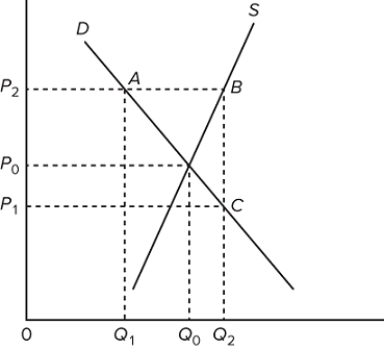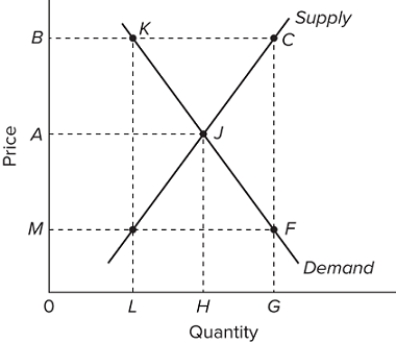Exam 22: Agriculture: Economics and Policy
What are price supports? When did the government begin using price supports?
The term price supports refers to price floors applied to farm commodities. It is the minimum price that the government allows farmers to receive for farm commodities like wheat or corn. The government began using them in the 1930s until major farm program reforms in the mid-1990s.
Describe the purpose of the Food, Conservation, and Energy Act of 2008.
The Food, Conservation, and Energy Act of 2008 continued the freedom-to-plant approach and was composed of three subsidy programs. One program provided direct payments based on the farmer's previous crops planted. Another program provided countercyclical payments that paid the difference between market prices and target prices. The third was a marketing loan program that was based on a specific price and an option to either pay back the loan or forfeit the crop to the government lender.
 Refer to the graph of the market for wheat. The government adopts a price support program for wheat and supports the wheat price at P ₂. The area of 0 P ₂ AQ ₁ would measure the
Refer to the graph of the market for wheat. The government adopts a price support program for wheat and supports the wheat price at P ₂. The area of 0 P ₂ AQ ₁ would measure the
D
The Agricultural Act of 2018 ended the crop insurance programs created by the Agricultural Act of 2014.
The demand for agricultural products is quite inelastic, and this can be explained by
 Refer to the table. If government adopts a price support program that sets the price at $9, then the total amount that private buyers would pay for this agricultural product is
Refer to the table. If government adopts a price support program that sets the price at $9, then the total amount that private buyers would pay for this agricultural product is
Price support programs for agricultural products tend to cause shortages of these products.
Explain why agriculture has become a declining industry over the past half century.
Irving Tiller received an insurance payment because his wheat crop sold for a price below an established threshold. Under the Agricultural Act of 2014, Tiller received payment under
If in a certain year the indices of prices received and paid by farmers were 125 and 160, respectively, the parity ratio (in percentage terms)would be approximately
When increases in the supply of an agricultural product are much greater than the increases in demand for it over time, then the price
The 2014 Agriculture Act in the U.S. eliminated farm subsidies so as to encourage farmers to move their resources to nonfarming production activities.
 Refer to the diagram for the corn market. What effect will a price support of B have on the gross income of farmers?
Refer to the diagram for the corn market. What effect will a price support of B have on the gross income of farmers?
The inelastic demand for agricultural products means that a(n)
The Food, Conservation, and Energy Act of 2008 provided three main forms of cash commodity subsidies, including the following, except
The relative price inelasticity of demand for agricultural products has resulted in
When critics of U.S. farm policy say that it treats symptoms rather than causes, they mean that the
The increase in the productivity of U.S. farmers has caused
Filters
- Essay(0)
- Multiple Choice(0)
- Short Answer(0)
- True False(0)
- Matching(0)